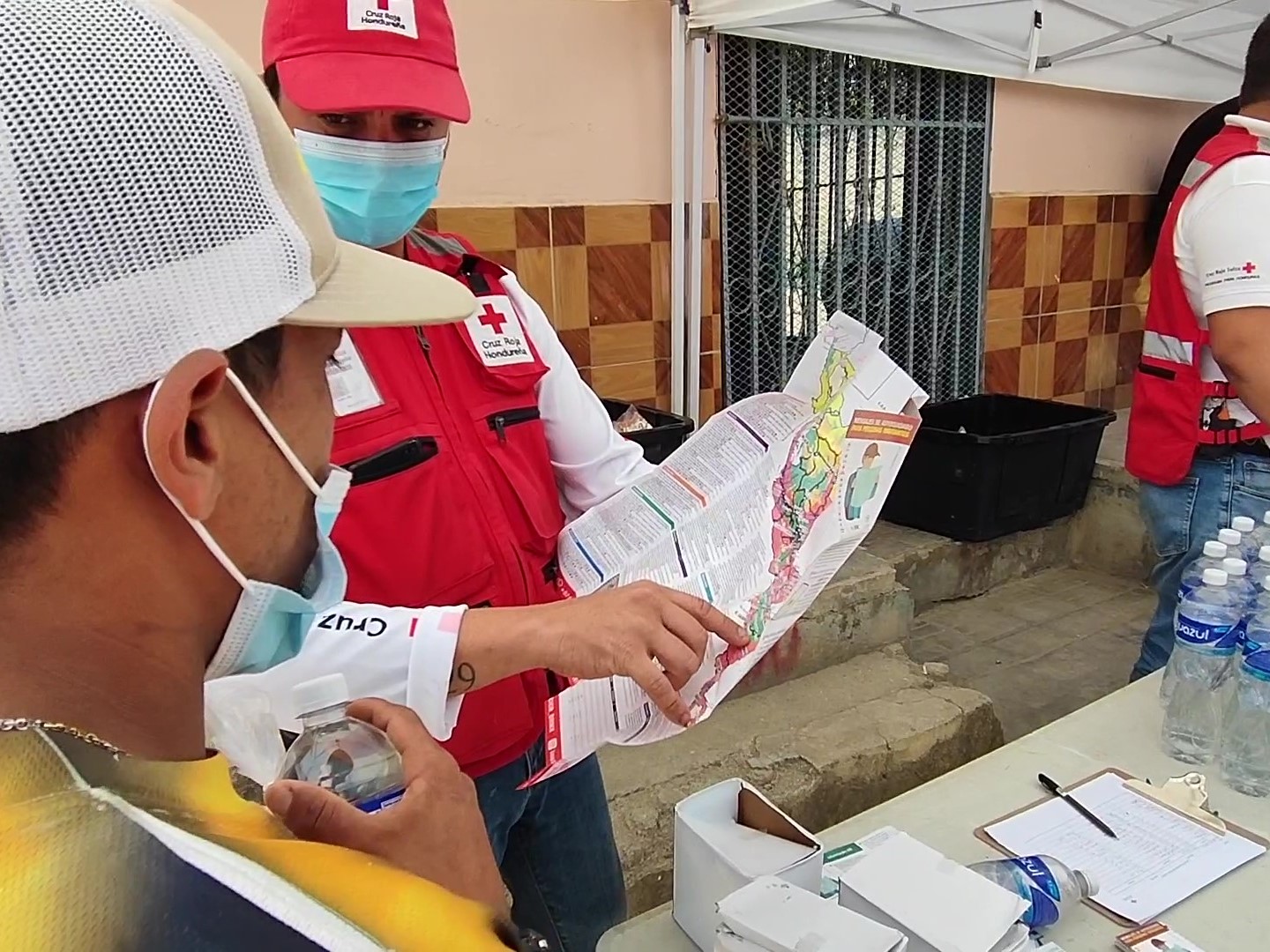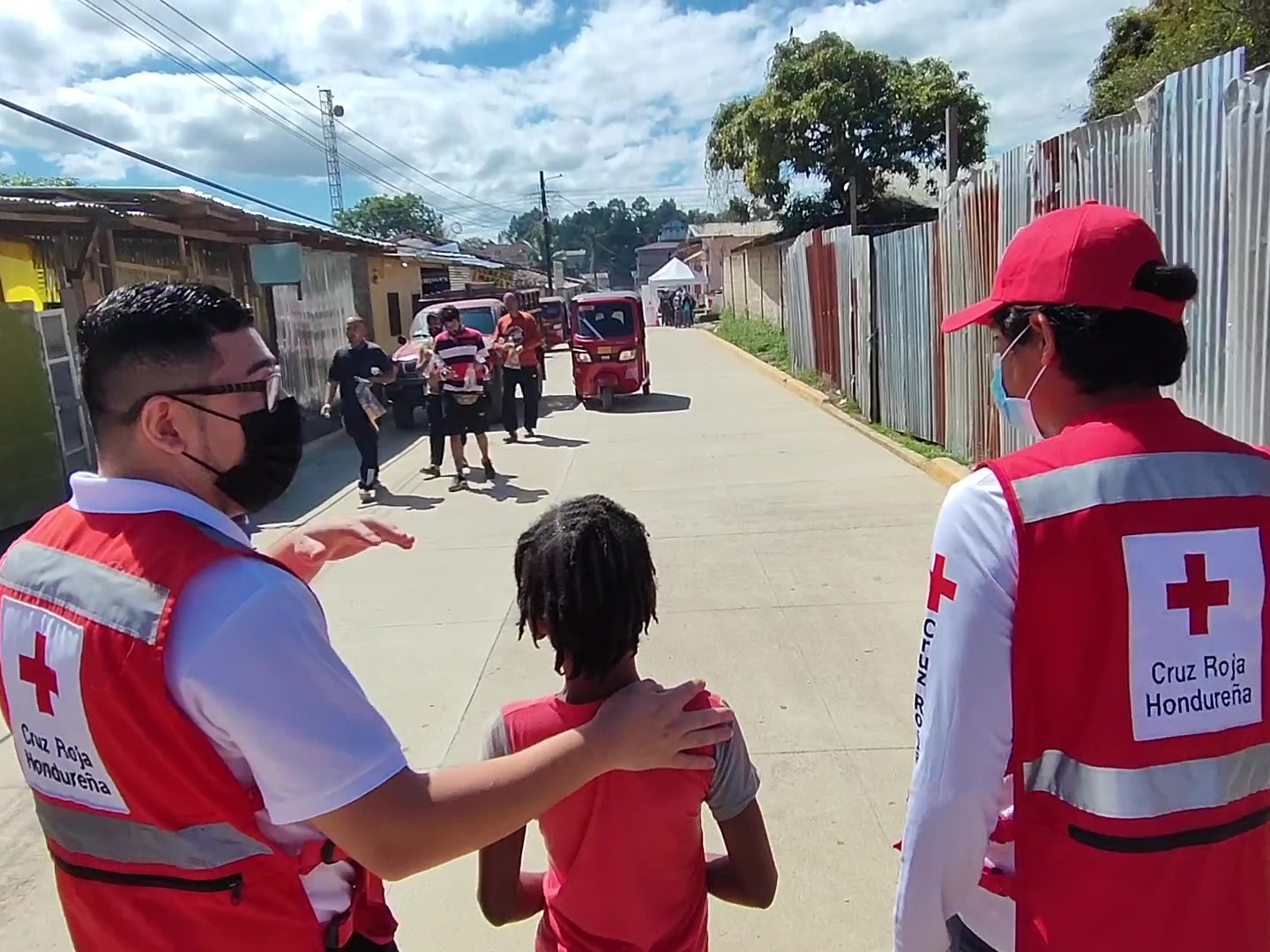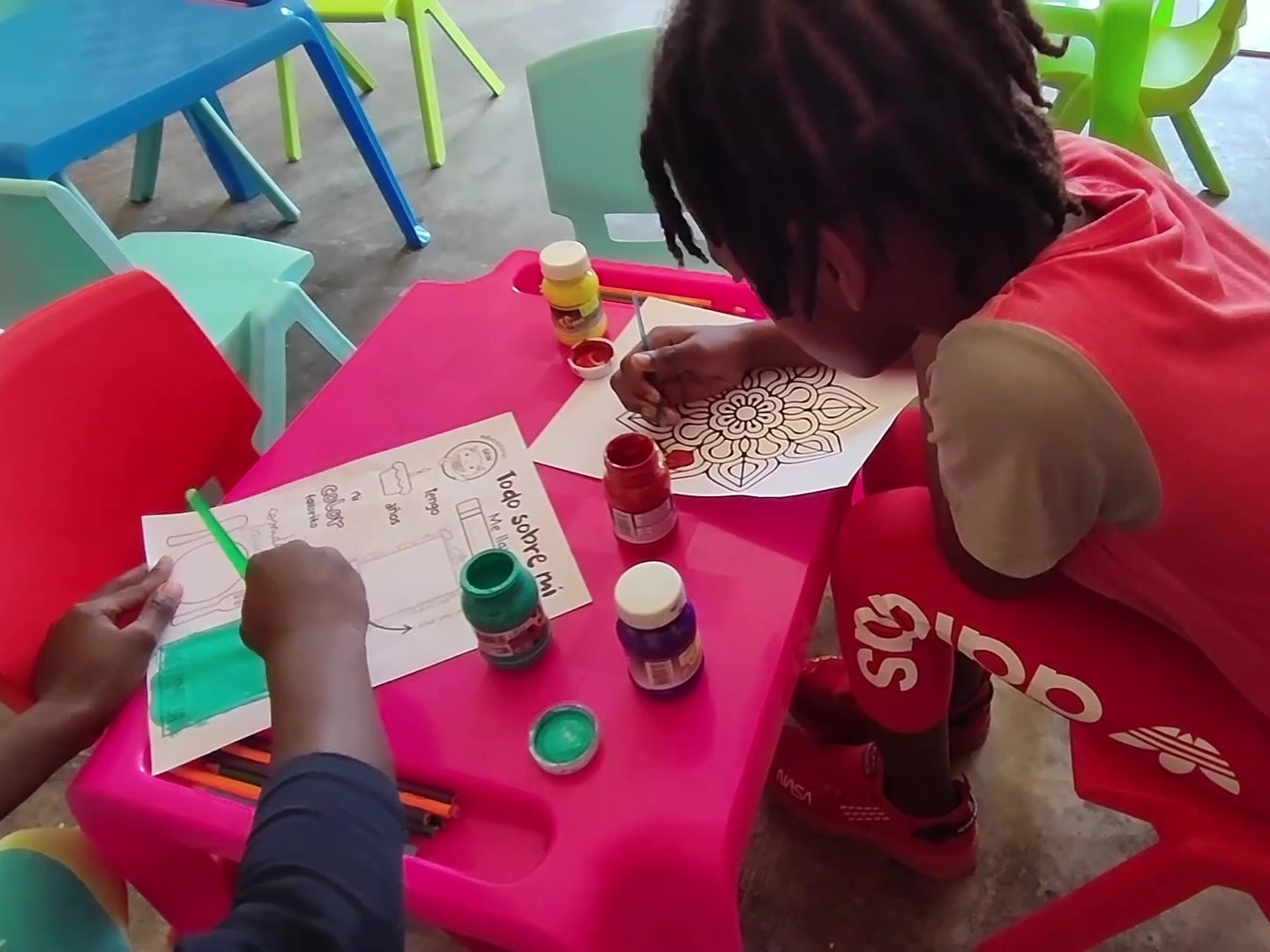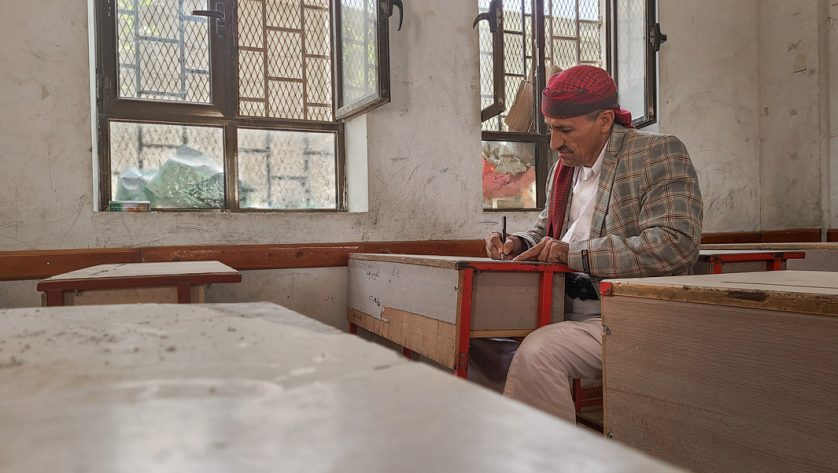A safe space along the migration route
Trojes, a small community in the department of El Paraíso in Honduras, has become one of the main transit points for migrants crossing the border into Nicaragua. According to INM data, in 2022, the municipalities of Trojes and Danlí accounted for 73.7 per cent of all migrants entering the country, one reason a group of Red Cross volunteers is always present here to provide much needed support.
Among them is Pedro Luis Mejia, in charge of psychosocial support at the service point. “They go through many difficulties along the way and in some cases, they need a little relief,” he says. “We are offering them a friendly and safe space where we can help them.”
Besides psychosocial support, the Red Cross also hands out hygiene kits, biosecurity kits and medical first aid, as well as snacks and hydration. “If they have a wound or an infection, the wound is cleaned and healed, and they are given hydration with saline solution,” explains Jennifer Morales, one of the Honduran Red Cross psychosocial support experts.
The work of the volunteers has brought relief to many people, especially those who have come a long way in their search to improve life for themselves and their families. “My dream is to arrive and work, and take care of my whole family,” says one of the migrants who received care from the Red Cross in Trojes. “After I am well, stable and with a good job, yes, I will bring my whole family, my children and my wife.”
 Red Cross Red Crescent magazine
Red Cross Red Crescent magazine 









 Tech & Innovation
Tech & Innovation Climate Change
Climate Change Volunteers
Volunteers Health
Health